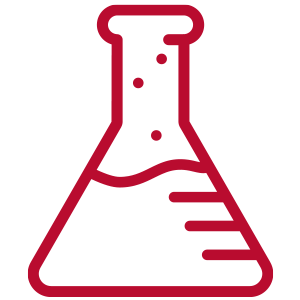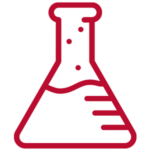Welcome to Washington University in St. Louis! Transferring research is a lengthy, involved process that works best when the research administrators from both institutions work together with the PI. Please share this guidance with your research administrators at your current institution.
Your WashU department administrator is working on adding you to our system to generate your WashU Key – the unique username and password used to login to many of our systems.
In the meantime, review the information below to begin the transfer process. A high-level checklist of major steps is also available. Ideally, this process is started at least 90 days before the anticipated start date at WashU.
WashU administrators: Follow the Guidance for WashU Admins page.
PIs transferring from WashU to another institution should follow the PI Departure Checklist.

Transfer Sponsored Research
Determine Awards That Will Transfer
Awards are given to institutions, not individual investigators. Your outgoing institution will make the final determination on which awards they will allow to transfer to WashU. Work with your outgoing institution to determine which awards will transfer.
Receive a Relinquishment Letter
Awards that will transfer to WashU are typically accompanied by a relinquishment letter or written confirmation provided by the outgoing institution. This should also include:
- Name of award
- Award number
- Sponsor
- Date of relinquishment
- Ending balance
- Remaining cost sharing obligation (if applicable)
Request Transfer From Sponsor
Once you confirm which awards will transfer, the research administrators at your current institution can request the transfer with the sponsoring agencies. Transfers are typically approved by sponsors, but are not guaranteed.
The forms and documents required vary by sponsor, but common sponsor requirements by sponsor include:
- NIH
- Complete the Relinquishing Statement (PHS Form 3734)Final Invention Statement PHS Form 568
- Final Federal Financial Report (FFR)
- NSF
- Initiate a PI Transfer Request via research.gov
- DOE
- Signed novation agreement
For other sponsors, work with your current research administrators and the agency to determine requirements.
Notify Subawardees
Notify subrecipients of the intended award transfer. In most cases, the outgoing institution will end the subaward and WashU will issue new subawards after the transfer is completed. This may cause an interruption in work after the outgoing institution has ended the agreement, but WashU has not yet issued the new subaward. Preaward costs for the subrecipient may be allowable in the event of a gap between award transfer date and new institution start date. These costs should be confirmed with the sponsor.
Provide WashU Information
- For grants: Most recent Notice of Award (NOA) for each award
- For contracts: Signed agreement and any signed amendments (if any are marked as “Confidential” ensure you have permission from the other party prior to sharing)
- Details for each award/contract to transfer
- Check with your new WashU administrators to determine the best format to provide this information
- Relinquishment statement/letters or other written confirmation of transferring awards
- Copy of initial application submitted to sponsor
- Subaward agreements
- Final invention statement
- Final progress report
- Completed objectives and planned objectives for WashU
While processing your incoming grant or contract, WashU department administrators work with many offices, including:
- Office of Sponsored Research Services (OSRS): WashU’s central office for reviewing and approving outgoing proposals. OSRS provides final institutional approval in internal and external agency systems.
- Joint Research Office for Contracts (JROC): the office that facilitates the execution of federal and foundation subawards and contracts, industry-supported research agreements, industry supported clinical trials, data transfers, service agreements, and other research-related agreements.
- Sponsored Projects Accounting (SPA): responsible for setting up incoming award accounts and reviews and approves all charges to sponsored funds.
Complete Agreements to Transfer Materials and Data
Transferring in materials (animals, human samples, etc.) typically requires a Material Transfer Agreement (MTA) with the Office of Technology Management (OTM). Because the outgoing institution controls much of the process for the transfer, each faculty transfer is unique. OTM works with the outgoing institution to complete any needed documentation. To begin the process:
- If you have a WashU key, follow the process on the Transfer Materials page for incoming materials.
- If you do not yet have a WashU key, email mta@wustl.edu
A Data Transfer and Use Agreement (DTUA) is typically required for transferring data. The outgoing institution should draft the DTUA upon receipt of necessary approvals (e.g. IRB, department). This may be one agreement covering all data or multiple agreements. DTUAs should be submitted to the Joint Research Office for Contracts (JROC) via the intake process.

Personnel
If other personnel will transfer to WashU, provide a list to your WashU administrators. If visas are required, your administrators will work with the Office for International Students & Scholars (OISS).
If you plan to hire new personnel, provide your WashU administrators a list of desired positions.

Conflicts of Interest
Website: coi.washu.edu
Contact office: Conflicts of Interest (COI)
External Professional Activities Disclosure
Covered individuals (which includes most faculty and senior/key personnel) must disclose external professional activities (EPAs). A current External Professional Activities Disclosure must be on file before grant applications can be submitted. The disclosure must be reviewed and approved before an award’s spending account will be set up.
The EPA Disclosure is completed in the Research Management System (RMS). A WashU key is required to access RMS. The Submit a Disclosure page contains a login link to RMS and guides on completing the disclosure.
Incoming faculty transferring grants are encouraged to complete the EPA Disclosure as soon as possible to avoid delays in award set up.
Review the COI Policies and Guidance page for additional requirements.
Management Plans
Inform COI office if you have a current management plan for research from your prior institution and provide a copy of the plan.
Training
Covered individuals are also required to complete the online training Financial Conflicts of Interest (FCOI) Education. This training is required every four years.

Human Subjects Research
Website: hrpo.washu.edu
Contact office: Human Research Protection Office (HRPO)
Institutional Review Board
A new protocol for human subjects research must be completed in MyIRB (WashU’s system for human subjects research protocols). See the Research Guide for definitions on what is considered human subjects research. The Institutional Review Board (IRB) will review the proposed research at WashU and issue an approval letter. Human subjects research must be approved by the WashU IRB prior to starting the research. The myIRB system is accessible only after the faculty member’s hire date.
HRPO can assist with the transfer of IRB oversight, including research that is currently operating under a Single IRB model or relying on a commercial IRB. It is important to note that if a single site protocol at the outgoing institution will be conducted at WashU and the outgoing institution, Single IRB requirements may become applicable. It is recommended to schedule an IRB consultation with HRPO. This provides individualized guidance specific to the research portfolio.
Training
Before submitting a protocol in myIRB, all members of the research team must have completed Human Subjects Education and Good Clinical Practice (GCP) trainings.
Human Subjects Education
- WashU offers this training through the CITI Program. Individuals with a WashU key are able to access CITI.
- It may be possible to transfer previously completed Human Subjects Education when creating a WashU CITI account. See the CITI Guide for additional information. For Human Subjects Education only, it may be possible to receive credit for past training that cannot be transferred in CITI. Submit full details of prior training, including completion records that list all modules taken (not just a completion certificate), to hrpo@wustl.edu for evaluation. Credit can only be given to WashU employees on or after employment start date.
- Human Subjects training is a one-time requirement.
Good Clinical Practice (GCP) Training
- GCP training is required before submitting an application to the IRB. It is also required every 3 years during an active study.
- See the Good Clinical Practice Education page for details on how to complete training. Prior training completed through CITI can be transferred only if module IDs are an exact match. Review the CITI Program Guide on the CITI Program page for steps to transfer training.
Transferring Materials
Complete agreements if transferring in specimens or data. Reference the above section Complete Agreements to Transfer Materials and Data.
Clinical Trials
Reporting for clinical trials may be required before leaving the outgoing institution.
Other Resources
- Center for Clinical Studies (CCS)
- Institute of Clinical and Translational Sciences (ICTS) and Clinical Research Training Center

Animal Studies
Website (WashU key required): Animal Care and Use and New Investigator Resources
Contact offices:
- Institutional Animal Care and Use Committee (IACUC): Protocol review, policies, inspections
- Division of Comparative Medicine (DCM): Procurement, husbandry, facility operations, veterinary support
Protocol
Animal use protocols are submitted and reviewed through the Lab Animal Management and Protocol System (LAMPS).
PIs transferring to WashU are encouraged to submit specific experimental protocols for review prior to arrival. This enables the protocol to be approved shortly after the PI’s employment start date.
If the experimental protocol is submitted and under review by the WashU IACUC, incoming investigators may transfer their animal colonies to WashU to be housed on the DCM import/export protocol. While animals are housed on the import protocol, no breeding or experimental procedures are permitted.
Training
All protocol personnel handling animals must complete online training before protocols will be approved. Personnel should complete the Compliance Profile in Learn@Work to be assigned the correct trainings. A full list of training is available on the Animal Education page.
Additional training is required for facility access. This training happens after protocol approval.
Transferring Animals
Transferring animals is a multi-step process that should be initiated early. However, there are timing considerations relating to protocol review and approval that will impact the timeline for transferring animals.
For details, see How to Transfer your Animal Colony to WashU.
Facilities
DCM determines housing locations. Discuss your housing needs, including species, size of colony, specialty caging needs, and lab location, with your DCM veterinarian as soon as possible. Protocol approval and certain training is required before receiving access to facilities.
Additional information is available on the New Investigator Resources page.

Lab Safety & Hazardous Materials
Website: ehs.washu.edu
Contact office: Environmental Health and Safety (EH&S)
Transferring PIs should provide EH&S:
- List of chemicals
- List of equipment transferring
- Your department, building and room number(s).
EH&S will schedule an onboarding session to cover requirements and processes for chemical inventory, waste submittal, and lab safety inspection.
Approvals
Recombinant DNA and Hazardous Research Materials
- Contact ehsibc@wustl.edu to request access to the online protocol system (myIBC)
- Protocol must be reviewed and approved before work can begin
Radioactive Materials (human or non-human use), X-ray devices, Large Magnets, Lasers
- Contact Radiation Safety at radsafety@wustl.edu for more information on the forms required to initiate an authorization, and the training required (both are dependent on the type and amounts of materials being used)
- Approval must be received before work can begin
Gamma irradiators
- HR background security checks cannot begin until the individual is employed only by WashU. At that time, contact Radiation Safety to begin the process.
Training
- Online training is assigned by the compliance profile and completed in Learn@Work.
- Required training varies by type of research and hazards.
- Most training requires an annual refresher.

International Components
Website: Export Control
Office: Export Control Office
If your research contains international components, work with the Export Control Office to determine requirements.
If research limits publication, open discussion, or has foreign national involvement, it may not qualify as fundamental research; thereby export control regulations may apply. Any engagement in research involving sanctioned countries, individuals, or organizations must be reviewed.
Before initiating an international collaboration, WashU must determine whether a license is needed and confirm that the individuals or institutions are not subject to U.S. sanctions or restrictions.
Any collaborators and foreign national visitors to campus, including H-1B, J-1, and F-1 visa holders, international scholars and students, and visiting faculty or researchers, should be screened against U.S. Government Denied and Sanctioned Party Lists.

Intellectual Property
The Disclose Inventions page provides information on this process along with a disclosure form (WashU key required). You can also contact the Office of Technology Management at otm@wustl.edu with any questions.

Training
Most research compliance training is completed in Learn@Work (WashU key required).
Many required trainings are listed on the Trainings for Researchers page. Training required for human subjects education, animal models, and environmental health and safety are assigned by the Compliance Profile – a questionnaire about responsibilities and work environment.

Affiliations and Documents
Change your affiliation in various systems to reflect your new role at WashU. Some systems also allow you to enter WashU research administrators as delegates to assist with administrative functions.
Update Affiliations and Delegates
Guidance documents:
- ORCiD: Add Employment Information to your ORCiD Record
- SciENcv: Manage Linked Accounts and Adding and Removing Delegates
- eRA Commons (NIH): Switching Institutions and Managing Delegation
- Research.gov (NSF): Moving to Another Organization
- Grants.gov (DOE, etc.): Edit My Account
- NSPIRES (NASA): Manage Organization
Update Documents
Transferring research is a complex process. For any topic not covered above, work with department research administrators at both institutions to identify the correct process or contact Johnnie Cartwright, Associate Vice Chancellor for Research & Chief of Staff.








